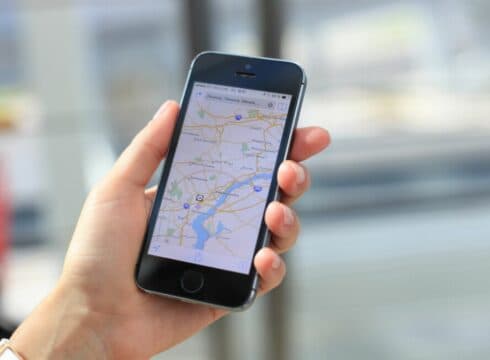Delhi and Mumbai have also followed similar trends with 86% and 89% decline, respectively
Google report also noted a 77% drop in mobility trends for places of retail and recreations
Both Google and Apple have emphasised that the data collected by them is anonymous
Inc42 Daily Brief
Stay Ahead With Daily News & Analysis on India’s Tech & Startup Economy
Following Google’s footsteps, global tech giant Apple has launched a new COVID-19 Mobility Tool that allows users to get a rough estimate of the movement across the cities.
With this tool, Apple aims to help healthcare professionals and the government get anonymous data of the movement in specified regions. The new tool has been integrated into Apple Maps and collects data based on the number of requests made to Apple Maps for directions.
The company elaborated that the users can plug in a city or a region, and see a graph showcasing the movement across the specified area. The tool has been customised for healthcare professionals and the governments to get an estimate of the number of people staying indoors and how many are travelling, Apple said in a blog post.
The Apple Mobility Trends Report is published daily and reflects requisitions for direction in Apple Maps since January 13, 2020. For instance, Italy has noted an 85% decline in such requests, followed by the UK with 70%.
India, on the other hand, has noted a 75% decline in walking direction requests, and 83% for driving.
Delhi and Mumbai have followed the same trend as well. Meanwhile, the data for other Indian cities is not available in the report.
Apple, in a blog post, added that the “Data availability in a particular city, country, or region is subject to a number of factors, including minimum thresholds for direction requests made per day.”
| Area | Walking Directions | Driving Directions |
| Delhi | -83% | -86% |
| Mumbai | -84% | -89% |
Apple has also emphasised that the privacy of the user is not being compromised with this feature as the data is anonymous and is not tied to any Apple ID. “Privacy is one of our core values, so Maps doesn’t associate your data with your Apple ID, and Apple doesn’t keep a history of where you’ve been,” the company said.
Google’s Covid-19 Community Mobility Reports also aim to he;p public health officials with aggregated, anonymised insights on Mobility trends across the world. The feature also relies on Google Maps to provide the movement trends over time by geography, across different categories of places such as retail and recreation, groceries and pharmacies, parks, transit stations, workplaces, and residential.
As per the report of April 5, 2020, India has seen a 77% drop in mobility trends for places of retail and recreations — restaurants, cafes, shopping centres, theme parks, museums, libraries, and movie theatres. There was up to 65% decrease in people going to grocery markets, food warehouses, farmers’ markets, speciality food shops, drug stores, and pharmacies.
The map also noted the following:
- 56% decline in mobility trends for parks
- 71% decline for movement to public transport hubs like subway, bus and train stations
- 43% decrease in people travelling to workplaces
- 21% decrease in movement of residence
{{#name}}{{name}}{{/name}}{{^name}}-{{/name}}
{{#description}}{{description}}...{{/description}}{{^description}}-{{/description}}
Note: We at Inc42 take our ethics very seriously. More information about it can be found here.


